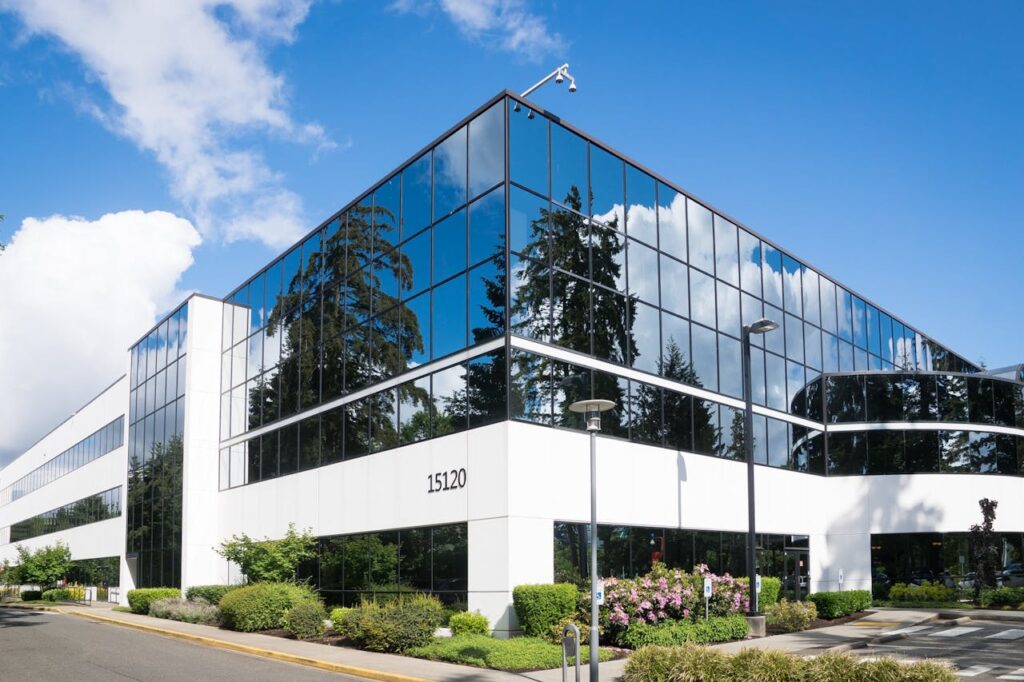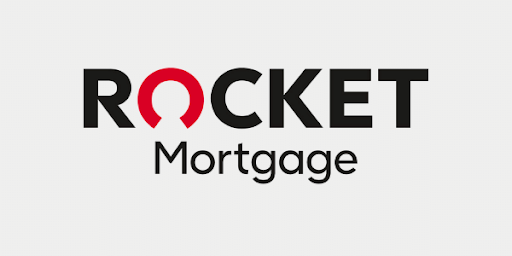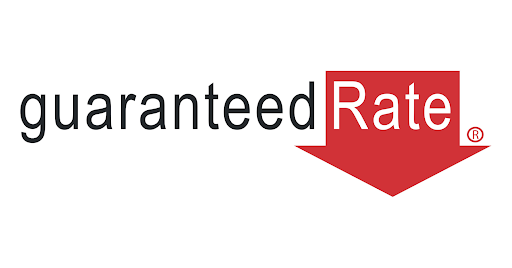Whether you’re new to real estate investing or you’ve been in the industry for years, there are always opportunities for those who are looking to maximize returns – especially in 2025. According to a first-quarter 2024 report from ATTOM, the average annual gross rental yield for a three-bedroom home is projected to rise to 7.55%, up from 7.39% in 2023. On top of that, in 63% of the 341 counties analyzed, median rents for three-bedroom homes are outpacing the growth of single-family home prices.
Keeping these rising trends in mind, understanding how to leverage real estate investment loans is more important than ever. Without them, you’d only be able to make cash deals, slowing down your portfolio growth. Real estate investment loans come in a range of options, making it easier to achieve your financial goals depending on your needs.
In this guide, we’ll break down what you need to know about real estate investment loans before securing your next deal. Let’s get started, so you can take full advantage of the growing real estate opportunities this year!
What’s a Real Estate Investment Loan?
A real estate investment loan is a type of financing that’s specifically designed to buy, renovate, or refinance a property intended to generate income – whether it’s a rental property, a fix-and-flip, or a new build. These loans can also be used for different property types like single-family, multi-family, vacation, or commercial properties depending on what your investment goals are.
In contrast to traditional mortgages, which are meant for primary residences, investment property loans are tailored for properties used to produce income, and as a result, they tend to have different qualification requirements.
Types of Real Estate Investment Loans
Depending on your goals, there are a few different types of loans you could get to finance an investment property. Below, we’ve explained some of the most common types of real estate investment loans, so you can get an idea of what type could work best for you.
1. Conventional Investment Property Loans
Conventional investment property loans are traditional mortgages offered by banks, credit unions, and mortgage lenders for investment properties. While they’re commonly found, they can be harder to qualify for because of their strict qualification criteria. For investment properties, conventional investment property loans usually require a 20-30% down payment, higher credit score, and traditional income verification. Interest rates are also typically higher than for primary residence loans.
2. Debt-Service Coverage Ratio (DSCR) Loans
DSCR loans are for investors who are looking to buy an income-generating investment property. These loans allow you to qualify by using the property’s cash flow rather than your own personal income. They can be a great way to build your portfolio quicker since there’s no hard limit on how many DSCR loans you can have and your personal income doesn’t limit your loan amount.
3. Fix-and-Flip Loans
Fix-and-flip loans are short-term loans designed for investors who have plans of buying a property, renovating it, and then selling it for a profit. Approval is usually based on historical experience, renovation plans, or a mix of both. This type of loan is great for home flippers who are looking to cash in by adding value to a property with deferred maintenance or outdated aesthetics.

4. Construction Loans
Construction loans are short-term loans that are meant for building a new property from the ground up or significant renovations to an existing property. Similarly to fix-and-flip loans, you can get approval for a construction loan based on your previous experience and building plans. Whether you’re a property developer or an individual investor, construction loans can be a valuable tool for investors who want to build from scratch and sell for a profit.
5. Hard Money Loans
Hard money loans are short-term, asset-based loans that are usually provided by private lenders. They’re secured by the investment property itself and are often used for quick purchases or property flips. Despite having higher interest rates and fees, they tend to offer fast approvals and more flexibility than traditional loans.
6. FHA 203(k) Loans
FHA 203(k) loans are government-backed loans designed for buying and renovating a property. They’re available for both primary residences and certain investment properties. Similar to a fix-and-flip loan, the loan proceeds cover both the purchase and renovation costs in one loan and offer lower down payments with flexible credit requirements. The main drawback of this loan type is that the borrower needs to live in the property, even if it’s just in one unit of a multi-family property.
7. Commercial Real Estate Loans
Commercial real estate loans are used to buy income-generating commercial properties like office buildings, retail spaces, storage units, or any other type of commercial building. These loans usually need larger down payments and typically have shorter loan terms than residential loans. They approve the loan based on the property’s cash flow rather than personal income, similar to a DSCR loan.

What To Look for When You’re Searching for a Real Estate Investment Loan
When reviewing your real estate investment loan options, you should think about considering several key factors to make sure you choose the right option for your investment goals. As we’ve covered in the previous section, there are many different types to choose from.
First, look at the loan terms, like interest rates, down payment requirements, and the length of the loan, since these factors can directly impact your cash flow and profitability. If you have a unique financial situation or non-traditional income, flexibility in the underwriting process is another thing you’ll want to look for. Next, check the lender’s experience with investment properties and whether they can provide a loan that fits your strategy. Lastly, don’t forget about customer service – you want to make sure you can get quick responses and transparency from the lender throughout the entire process.
At Defy, we aim to create tailored loan solutions for investors that don’t fit the traditional mold, all while providing top-notch personalized service. Book a call with us to talk to one of our mortgage experts and get started on your real estate investment loan journey today.
How to Know If You’re Ready to Buy an Investment Property
No matter if you’re a new investor or an experienced one, knowing when you’re ready to buy an investment property can be tricky. Legendary investor Barbara Corcoran famously missed out on her first condo purchase by letting an option expire, losing her earnest money in the process. It took her six years to get back into the game, but she often shares this key lesson: you never know when you’re truly ready, but the earlier you start, the better. The key is being prepared financially and strategically, even if you’re still figuring things out as you go.
Have a Financial Cushion
One of the most important signs that you’re ready is being able to cover all the costs associated with the investment. These include not just the down payment, but also closing costs, property maintenance, property management fees, insurance, and potential vacancies. Having a financial cushion ensures that you can manage any unexpected expenses without risking your personal finances.

Calculate Your Return on Investment (ROI)
Another critical factor is understanding how to calculate your return on investment (ROI). To calculate ROI, start by subtracting your annual operating costs (mortgage, taxes, insurance, maintenance, etc.) from your annual rental income. Divide the remaining profit by your total investment (initial down payment and closing costs) to get your ROI percentage. For example, if you’re making $10,000 in profit each year and invested $100,000, your ROI would be 10%. Understanding this calculation helps you gauge whether the property will generate enough returns to meet your financial goals.
Find the Right Lender
Finding the right lender and loan type can make or break your next real estate investment venture. Compare different lenders and loan options to determine which one best fits your strategy. Look for lenders who specialize in real estate investment and can offer flexible terms based on your needs.
How to Finance an Investment Property
Investment Property Loan vs. Conventional Home Loan
A conventional home loan is mainly used to buy a primary residence, which is a property where the borrower intends to live. On the other hand, an investment property loan is designed for properties that generate rental income or are intended for resale at a profit.
Some of the key differences between the two are:
- Down Payment: Investment property loans usually require a larger down payment (15-30%) compared to conventional loans, which allow as little as 3-5% down.
- Interest Rates: Investment property loans typically come with slightly higher interest rates.
- Credit Requirements: Some investment property loans tend to require a higher credit score compared to conventional home loans.
Although it may sound more difficult to get a real estate investment loan compared to a conventional loan, there are alternative lenders, like us at Defy, that simplify and streamline the process. Qualifying for an investment property loan doesn’t have to be difficult – let us help by booking a free consultation with us today.
Agency (GSE) Investor Loans (Fannie Mae & Freddie Mac)
If you’re looking to finance your first investment property, an agency loan is also an option. These loans are backed by government-sponsored enterprises (GSEs) like Fannie Mae and Freddie Mac and offer one of the most cost-effective financing options for first-time real estate investors. They come with competitive interest rates, which make them a popular choice for first-time investors.
The downsides are that you have to provide extensive documentation with strict qualification criteria. These are some of the requirements needed to qualify:
- Extensive documentation, such as two years of tax returns
- Higher reserve requirements
- Higher down payment requirements
- Restrictions on cash-out refinances
- Cannot borrow under a legal entity
- High debt-to-income (DTI) ratio requirements
On top of all of the requirements, another thing to expect with an agency loan is a lengthy underwriting process. While these loans can be a great option if you can qualify for them, many investors find the convenience and flexibility of other investment loan options to be easier and faster to navigate.

Best Real Estate Investment Loans of 2025
To help you get started on finding a lender to partner with on your next real estate investment adventure, we’ve gathered a list of the top four real estate investment loans below based on factors like customer satisfaction, rate transparency, overall brand message, and more. Keep in mind that these are in no particular order.

1. Rocket Mortgage
Rocket Mortgage is known for its user-friendly online platform, making it an ideal choice for tech-savvy investors looking for a fast and convenient loan process. Their streamlined application allows you to get pre-approved within minutes, and they offer competitive rates for investment properties. For first-time investors, Rocket Mortgage’s simplified and transparent process can help take the guesswork out of financing, making it easier to secure a loan.

2. Guaranteed Rate
Guaranteed Rate is another great option for real estate investors because of its wide range of loan products and customizable loan terms. They’re known for offering competitive rates and flexible down payment options. Guaranteed Rate also provides dedicated support for investors, including helpful tools like calculators and access to expert loan officers, effortlessly helping you find the right loan for your investment strategy.

3. Defy Mortgage
Defy Mortgage is shaking up the mortgage industry with bold, innovative solutions tailored for non-traditional borrowers. Their experienced team specializes in helping real estate investors grow their portfolios with customized loan options that break away from the typical, one-size-fits-all approach. Whether you’re buying or refinancing, Defy simplifies the process, ensuring a smoother, more secure experience. Led by CEO Todd Orlando, Defy is committed to serving the growing number of self-employed and non-QM borrowers, offering specialized products like DSCR loans to meet unique needs. Fast closings and an emphasis on putting you in control make Defy a standout in the world of real estate investment financing.

4. Flagstar Bank
Flagstar Bank stands out for its portfolio loan options, which are perfect for investors looking to finance multiple properties or non-traditional real estate purchases. With more flexibility than traditional loans, Flagstar offers competitive terms, and their experience in investment property loans means they understand the unique needs of investors. Their ability to hold loans in-house allows for more creative financing options.
Real Estate Investment Loan FAQs
- What type of loan is best for an investment property?
The answer to this question would depend on your personal situation and your investment strategy. For example, an investor who mainly does property flipping would likely choose a fix-and-flip loan, whereas another investor who prefers income-generating properties might get a DSCR loan. The great thing about real estate investment loans is that there are plenty of options, so you can find a financing solution that works best for you.
- How do you know if you’re ready to buy an investment property?
Some things to think about before getting an investment property are having a financial cushion to be able to cover any unexpected costs outside of the closing costs and monthly mortgage payments and calculating the property’s ROI. The financial cushion will protect you from potential financial hardships if things don’t go as expected and the ROI will give you an idea of whether this property aligns with your investment goals or not.
- How do you calculate ROI?
To calculate a property’s ROI, start by subtracting your annual operating costs (mortgage, taxes, insurance, maintenance, etc.) from your annual rental income, which will give you the profit. Then, divide that by your total investment (initial down payment and closing costs) to get your ROI percentage. For example, if you’re making $10,000 in profit each year and invested $200,000, your ROI would be 5%.
- What are the typical interest rates for investment property loans?
Interest rates for real estate investment loans depend on the lender, the loan type, your credit score, and the current market rates. You can generally expect the rates to be slightly higher than rates for traditional mortgages used to purchase a primary residence. Many investors find this higher rate worth it for the leverage to expand their portfolio.
- How much down payment is required for an investment property?
The amount you’ll have to put down heavily depends on the lender’s requirements, the type of loan, and your credit score. Keep in mind that you’ll likely have to put down more than you would for a mortgage on a primary residence. Generally, you can expect to put down anywhere between 15-30%.
- Can I use rental income to qualify for an investment property loan?
Yes! An investment property loan that you can qualify for with rental income is a debt-service coverage ratio (DSCR) loan. This loan takes into consideration whether the property can “pay for itself,” where the rental income covers most or all of the mortgage payments.
- What is a DSCR loan, and how does it work for investment properties?
A DSCR loan is short for a debt-service coverage ratio loan and it’s designed specifically for real estate investors with income-generating properties. Rather than considering your personal income, DSCR lenders use your property’s income to evaluate whether you can repay the loan or not. This makes it easier to qualify without having your personal income as a limitation.




